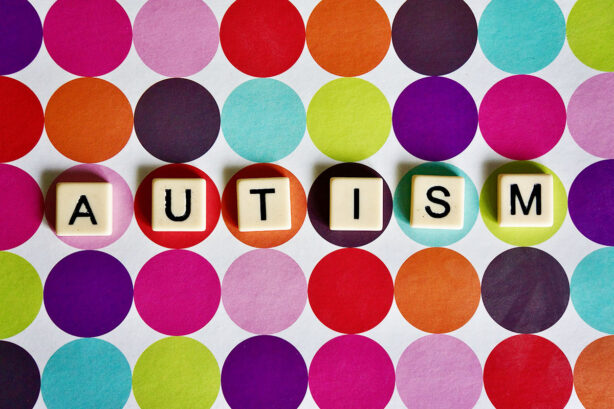Parents with autistic children often face difficulty finding effective autism therapy services. A child with autism may present a unique set of behaviors and challenges that require a specialized approach.
While there is no one-size-fits-all solution, there are some things that parents can do to increase the chances of finding successful autism therapy for their child.
With so many different types of therapies available, it can be challenging to know which one is the best fit for your child. Here are some tips on choosing the right autism therapy services:
Understand the Different Types of Autism Therapy
One of the most important things to consider when choosing an autism therapy is whether it is evidence-based. That means that the therapy has been found effective in scientific studies.
Many treatments for autism are not evidence-based, so it’s essential to do your research and make sure you’re choosing a therapy that has been proven to be effective.
Applied behavior analysis (ABA) is one of the most widely researched and effective types of autism therapies. ABA focuses on changing specific behaviors through positive reinforcement.
The Autism Parenting Magazine has a free guide on ABA therapy to help parents get started. ABA is particularly effective in improving social skills, communication, and self-care skills in children with autism.
Occupational therapy (OT) is another type of autism therapy that can be very effective. OT helps children with autism improve their fine motor skills and sensory processing. It can also help them develop independent living skills, such as dressing and grooming.
Speech therapy is often incorporated into autism therapy. Speech therapy can help children with autism improve their communication skills. It can also help them to understand others more easily and use language.
Many other types of autism therapies are available, including play therapy, music therapy, and art therapy. The best way to find an autism therapy that will work for your child is to talk to your child’s doctor or a developmental specialist.
They can help you understand the different types of therapies available and make a recommendation based on your child’s individual needs.
Find a Qualified Provider
Once you’ve decided on the best autism therapy services, it’s crucial to find a therapist who is experienced and qualified to provide that therapy.
Ask about the therapist’s training and experience in working with children with autism. Finding a therapist who is a good fit for your child is essential. You want to ensure your child feels comfortable and safe with the therapist to get the most out of the therapy.
You can find a list of qualified providers in your area through the Autism Society or the Association for Behavior Analysis International.
Get a referral from your child’s doctor or another trusted professional. You can also ask friends or family members who have children with autism for recommendations.
Create a Supportive Environment
For autism therapy services to be successful, it’s essential to create a supportive environment at home and school. That means working with your child’s teachers and therapists to develop an individualized education program (IEP) that includes goals for the therapy.
It also means ensuring that everyone who works with your child is on the same page about the goals of the therapy and how it should be implemented.
It’s essential to provide support and encouragement at home. Be positive and consistent in your expectations for your child.
Reward your child for progress made during therapy. And most importantly, don’t give up hope. With the right therapy and support, your child can make significant progress.
Set Realistic Expectations
Before starting autism therapy, it’s important to set realistic expectations. Autism is a lifelong condition, so it’s important to remember that there is no cure.
However, effective treatments can help improve your child’s symptoms and function in everyday life. Be sure to talk to your child’s therapist about what you can realistically expect from the therapy and how long it may take to see results.
It’s also important to keep in mind that every child is different. Some children with autism make great strides in their symptoms with therapy, while others may not show as much progress. But in general, all children with autism can benefit from effective treatments.
Don’t give up if you don’t see results right away. It can take time to see improvements in your child’s symptoms. Be patient and work with your child’s therapist to find the best possible therapy for your child.
Consider a Goal-Oriented Approach
A goal-oriented approach is often the most successful way to treat children with autism. That means setting specific, measurable, and achievable goals for the therapy.
It also means working closely with your child’s therapist to track your child’s progress and make adjustments to the therapy as needed.
This approach can help ensure that everyone involved in your child’s care is on the same page about the therapy goals and how they should be achieved. It can also help you better understand your child’s progress and whether or not the therapy is working.
Don’t hesitate to speak up if you do not see the results you want with autism therapy. Talk to your child’s therapist about your concerns and ask if other options might be more successful.
Advocating for your child is important and helps ensure they’re getting the best possible care.
Take Advantage of Community Resources
There are many community resources available to families affected by autism. These resources can provide support, information, and assistance in finding the right therapy for your child.
The Autism Society is a national organization that provides support and resources for families affected by autism. They have a network of local chapters that can connect you with resources in your community.
The Association for Behavior Analysis International also has a directory of qualified providers offering behavioral analytic services. This can be a great resource for finding a therapist who specializes in this type of autism therapy.
Your local school district may also have resources available for families affected by autism. Be sure to ask about services and supports available to you.
Don’t hesitate to reach out for help if you’re struggling to find a successful therapy for your child. Many people and organizations can offer support and assistance.
Finding a successful autism therapy for your child can be a challenge. However, it’s important to remember that there is hope. Progress may not happen overnight, but effective treatments can make a big difference in your child’s life.
Work closely with your child’s therapist and utilize community resources. With support and research, you’ll have a better chance of finding a successful autism therapy for your child.



